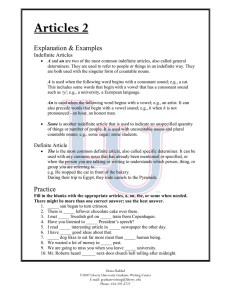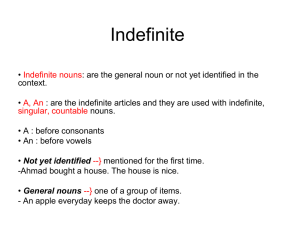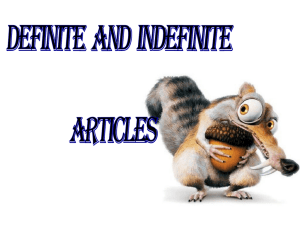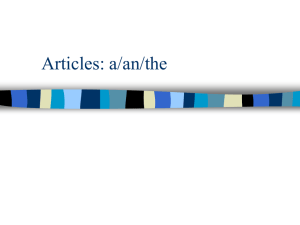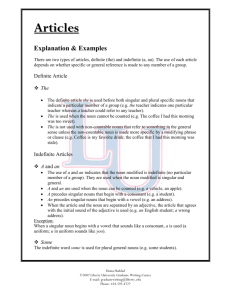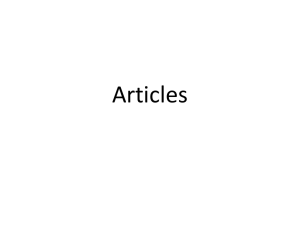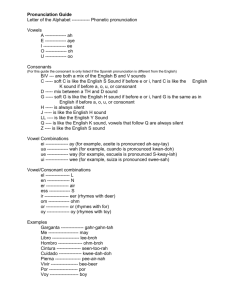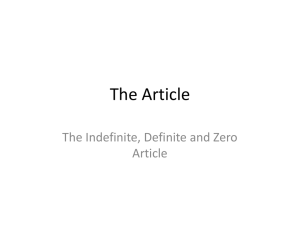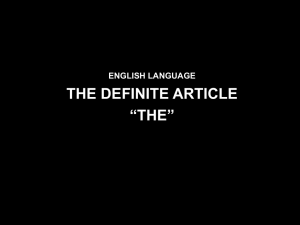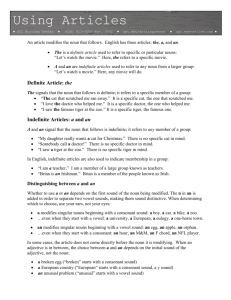Articles - Mohawk College
advertisement
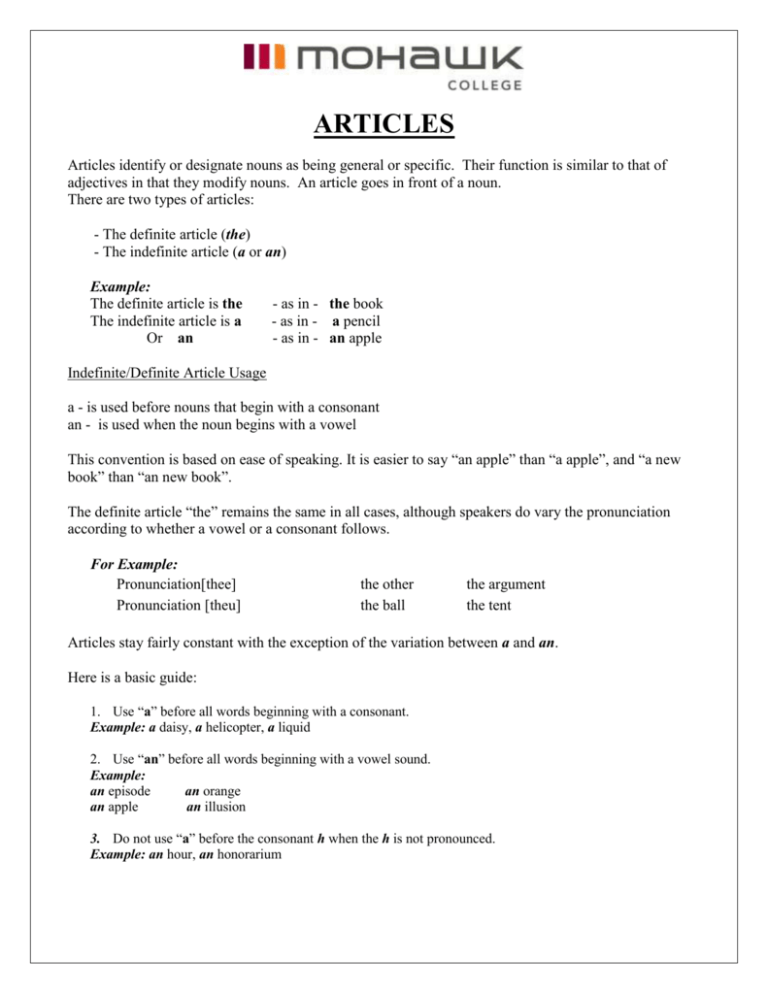
ARTICLES Articles identify or designate nouns as being general or specific. Their function is similar to that of adjectives in that they modify nouns. An article goes in front of a noun. There are two types of articles: - The definite article (the) - The indefinite article (a or an) Example: The definite article is the The indefinite article is a Or an - as in - the book - as in - a pencil - as in - an apple Indefinite/Definite Article Usage a - is used before nouns that begin with a consonant an - is used when the noun begins with a vowel This convention is based on ease of speaking. It is easier to say “an apple” than “a apple”, and “a new book” than “an new book”. The definite article “the” remains the same in all cases, although speakers do vary the pronunciation according to whether a vowel or a consonant follows. For Example: Pronunciation[thee] Pronunciation [theu] the other the ball the argument the tent Articles stay fairly constant with the exception of the variation between a and an. Here is a basic guide: 1. Use “a” before all words beginning with a consonant. Example: a daisy, a helicopter, a liquid 2. Use “an” before all words beginning with a vowel sound. Example: an episode an orange an apple an illusion 3. Do not use “a” before the consonant h when the h is not pronounced. Example: an hour, an honorarium 4. Do not use “an” before the vowels “u” or “o” when the word is pronounced as though it began with “y” or “w”, as is the case with “you” and “one”. Example: a Ukrainian, a ukulele, a one-way street 5. When the noun is the name of a letter of the alphabet, use an in front of f, l, m, n, r, s, x, and a in front of all others. Example: Is there an ‘A’ anywhere on you report card? I always forget to put an ‘L’ in the word balm. I need a ‘d’ to complete this word and win this game of Scrabble. 6. A refers to persons or things in a general way. Example: This is a new pair of shoes. That is not a book I would read. 7. A may suggest the meaning of “one”. Example: I could really enjoy a cold beer. A month from now I will be living in Spain. 8. The refers to persons or things in a specific way. Example: Did you see the look on her face? I need the money tomorrow. 9. Use the with abstract nouns when giving a specific explanation. Example: The fear Megan experienced during the movie gave her chills. The hopelessness of poverty affects many people in large urban areas. 10. Do not use the in front of an abstract noun when it is being discussed as a quality or emotion. Example: Selfishness seems to be a common vice. Paul never loses hope. 11. The is often used in front of the names of geographical locations, buildings, and institutions. Example: the Andes, the Great Wall of China 12. Do not use the in front of an academic course or subject. Example: Who is teaching chemistry? I’ve always had trouble studying economics. 13. Do not use the in front of titles. Example: Have you read Prospero’s Daughter by Constance Beresford-Howe? Sources: Sunega Thom, Know more English: from sentences to Paragraphs ,third edition, Prentice-Hall Canada Inc.1998 Developed by: The Communications Centre/ Nancy Solano / February 2008
